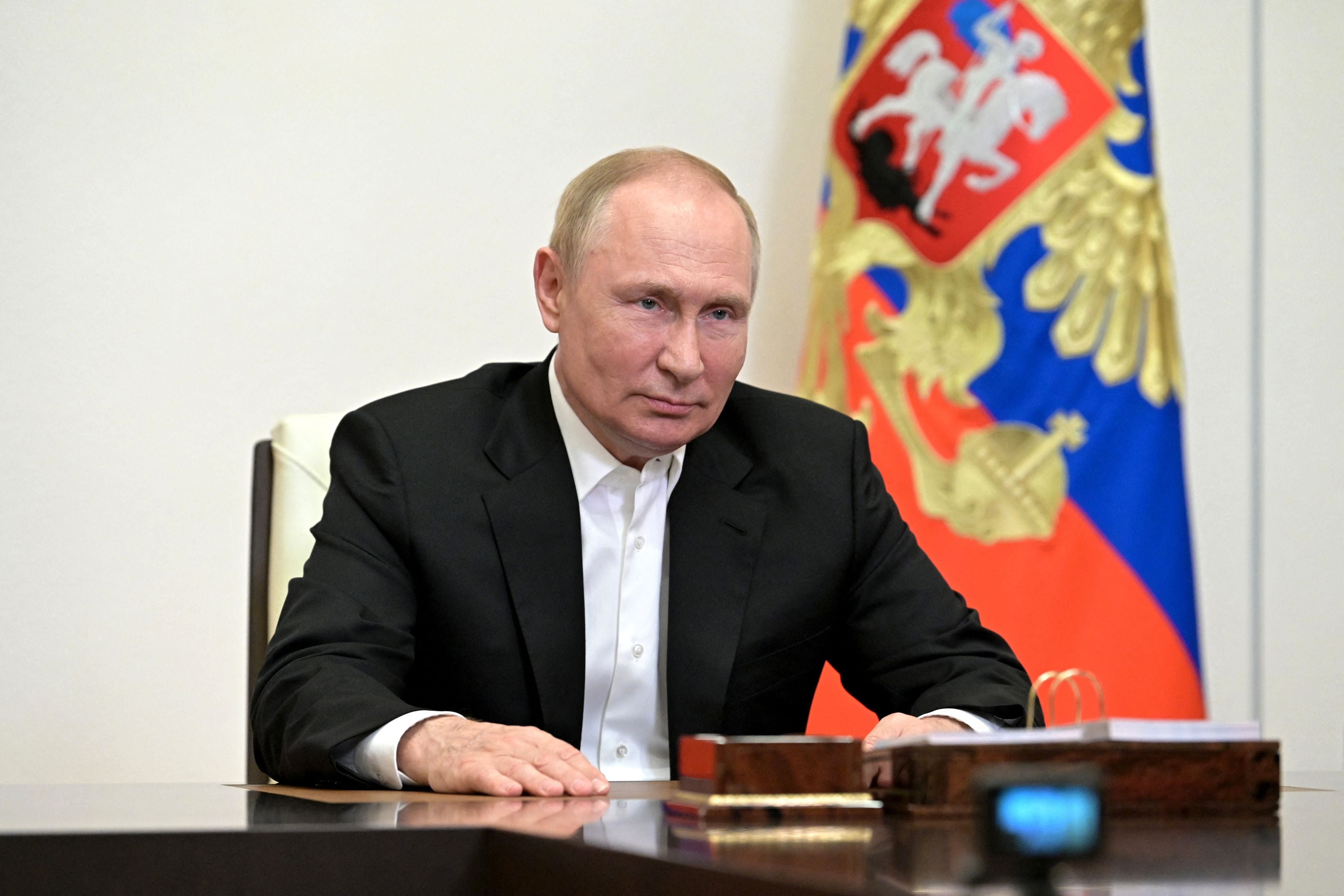Russia burns off ‘$10m of gas a day meant for Europe’ after huge flame seen near Nord Stream pipeline
Blaze at Portovaya plant visible from neighbouring Finland amid fears for climate impact


Russia is burning off vast amounts of natural gas which experts believe would once have been destined for Germany, as Europe struggles with rocketing energy costs exacerbated by Vladimir Putin’s war in Ukraine.
The flare at the Portovaya plant – which is located close to a compressor station at the start of the Nord Stream 1 pipeline – was first noticed months ago by residents across the border in Finland and in satellite images.
While such flares are common in Russia, the scale of the blaze at Portovaya has caught the attention of analysts.

Rystad Energy told the BBC that an estimated 4.34 million cubic metres of gas are being burned every day.
“I’ve never seen an LNG plant flare so much,” Dr Jessica McCarty, an expert on satellite data from Miami University in Ohio, told the national broadcaster. “Starting around June, we saw this huge peak, and it just didn’t go away. It’s stayed very anomalously high.”
While Russia has been frequently accused of seeking to fuel an energy crisis in Europe, it is unclear whether the flare is an example of that, a symptom of western sanctions or a step Russian state-owned energy firm Gazprom has taken for other reasons.
Citing technical problems, Gazprom began reducing the flow of gas to Germany through Nord Stream 1 in mid-June, with the pipeline running at only 20 per cent capacity in recent weeks, ahead of a further planned three-day shutdown for more “routine maintenance” at the end of this month.

Experts have suggested that this reduction in supply may have posed technical problems in handling the vast volumes of gas previously sent to Europe, with others theorising that the west’s trade embargo with Moscow could have resulted in Russia lacking some of the equipment necessary for oil and gas processing.
“While the exact reasons for the flaring are unknown, the volumes, emissions and location of the flare are a visible reminder of Russia’s dominance in Europe’s energy markets,” Sindre Knutsson, of Rystad Energy said.
“There could not be a clearer signal – Russia can bring energy prices down tomorrow. This is gas that would otherwise have been exported via Nord Stream 1 or alternatives.”

In addition to an estimated 9,000 tonnes of planet-heating CO2 equivalent being created each day at Portovaya, concerns have also been raised over the impact that the sooty particles produced by such flares –known as “black carbon” – are having upon the environment.
These concerns are particularly concentrated around the Arctic, with black carbon’s propensity to both raise air temperatures by absorbing sunlight and also darken the region’s surface blamed for accelerating the disappearance of ice and snow.
Meanwhile, as Europe grapples with the soaring cost of energy ahead of the approaching winter, Germany’s ambassador to the UK warned on Friday that “there is a risk” of political support for Ukraine waning in the continent as a result of the crisis.
“I think this is the same challenge here in the UK, for France, for all of Europe” Miguel Berger told BBC Radio 4’s Today programme. “The way Putin is using gas as a weapon and putting pressure on our societies – he wants to test our resolve. Obviously it will depend a lot on the relief packages of our governments.”
His comments came shortly after UK energy regulator Ofgem confirmed that its price cap would rise by 80 per cent in October, bringing calls for further government support for struggling households to fever pitch.
Global gas prices had already soared during the coronavirus pandemic as the ebb and flow of lockdowns and health restrictions disrupted supply chains, and prices have rocketed further following Russia’s invasion of Ukraine, sitting at more than 10 times their typical level.
On Friday, Boris Johnson insisted that Mr Putin’s ability to “exercise leverage over us and the rest of the world will diminish” and energy bills will eventually fall, as the outgoing prime minister blamed the Russian president for driving the spike in costs.
“I’m afraid that there’s a global spike in energy costs driven by Putin’s aggression in Ukraine,” Mr Johnson told broacasters.
“Putin’s position, Putin’s ability to blackmail, to exercise leverage over us and over the rest of the world will diminish week by week, month by month, and we will get through this and in the end, we will be in a much better position.”
Join our commenting forum
Join thought-provoking conversations, follow other Independent readers and see their replies
Comments




Bookmark popover
Removed from bookmarks